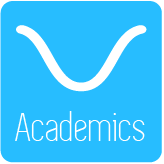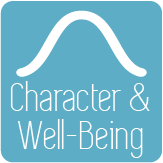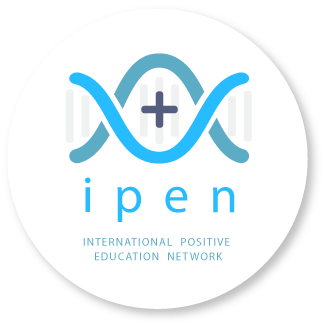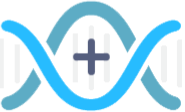We believe in a world where wellbeing, character and resilience education are core elements of the global education ecosystem.
We support all educational stakeholders so that individuals, communities and societies flourish.
Positive Education is the application of the science of Positive Psychology and related fields within an educational setting to encourage students, faculty, schools, universities and communities to flourish.
The focus is on enhancing the wellbeing and character development of students and faculty through the teaching and practise of specific skills within a learning ecosystem where the wellbeing of all is a priority.

The aim of the International Positive Education Network (IPEN) is to bring together teachers, parents, academics, students, schools, colleges, universities, charities, companies and governments to promote positive education. Our goals are to support collaboration, change education practice and reform government policy.


The fulfillment of intellectual potential through the learning of the best that has been thought and known.

The development of character strengths and well-being, which are intrinsically valuable and contribute to a variety of positive life outcomes.

The International Positive Education Network was born out of a meeting of the minds in 2013. Professor Martin Seligman, Sir Anthony Seldon and Lord James O’Shaughnessy brought together sixteen of the world leaders in positive psychology and education. From this meeting came two observations:
A Common DNA – despite geographic differences we found a common theme in the approach to positive education as seen through the promotion of academics alongside character & well-being. This has now become the Double Helix model of positive education that IPEN promotes.
No Global Organisation – It was abundantly evident that there were excellent practices in Positive Education taking place across the world, but there was no one body who brought these ideas, people and projects together in one place. This was the basis for creating IPEN – to connect people to the best research, policy and practice from around the world.
IPEN was thus established and our first Chair, Lord James O’Shaughnessy, led the Advisory Board during the early years of establishment and much was achieved. Emily Larson joined the team in 2014 and the following year was appointed Director of IPEN. Over the following four years her energy, passion and commitment towards Positive Education saw IPEN grow and flourish. The 1st Festival of Positive Education took place in 2016 in Dallas, USA, bringing together educators, academics, researchers, philanthropists and parents from across the globe. In March 2017 Chris Stawski stepped into the role of Chair and served IPEN with distinction until early 2020. His wisdom, determination and diplomacy assisted IPEN enormously.
The 2nd Festival of Positive Education followed in Fort Worth, USA in 2018. Both Festivals were a great success and the 3rd is to be a virtual conference held in October 2020 in association with Tecmilenio University, Monterrey, Mexico.
The two global conferences, together with a close working relationship with the International Positive Psychology Association (IPPA), provided the momentum for IPEN to go from strength to strength. Regional IPEN associations are being established progressively across the world and affiliate organisations have also emerged.
A new governance structure for IPEN was introduced at the beginning of 2020 better reflecting the global nature of our network. In February 2020, Simon Murray OAM was appointed Global Chair of the IPEN Board. In 2021 during the COVID-19 pandemic, Dominic A.A Randolph was elected as Global Chair. In May 2024, Anne Johnstone was appointed the new Global Chair of the IPEN Board.
We are fortunate that Professor Martin Seligman as Emeritus President, and Sir Anthony Seldon, as President, continue to contribute enthusiastically to the new IPEN Board.
Critical to the establishment and subsequent success of IPEN was the generous initial funding and resource contribution of Stuart Johnson, Founder and CEO of Success Partners and Jeff Olson, Founder and CEO of Neora LLC and Co-Founder of Live Happy, LLC. The IPEN family thanks both these men for their belief in the importance of establishing a global network aimed at helping people to flourish.
Today, IPEN is made up of the Chairs of the six founding regional IPENs (Australia, Latin America, MENA, Southeast Asia, UK Europe, USA), the Chair of the newest regional IPEN organisation IPEN Greece, along with five at-large Board members.

TWO STRANDS TO EDUCATION
The twin strands of our ‘character plus academics’ approach complement one another and are mutually reinforcing. This ancient wisdom has been empirically verified by modern science. Academic achievement contributes to wellbeing by increasing engagement, meaning and accomplishment. Conversely, programmes and practices designed to enhance wellbeing through the development of character strengths and virtues have been shown to positively contribute to academic achievement.
By pursuing both strands, positive education aims to enable young people to become the authors of their own life stories, endowing them with the practical wisdom they need to make good choices, overcome adversity, lead happy and successful lives, and contribute positively to society.
WE CAN ALL FLOURISH
Character may be destiny, but our destinies are not fixed.
Just as cognitive abilities can be improved through rigorous academic study, research has confirmed that our ability to be more courageous, patient, determined, compassionate or helpful can be improved with the right instruction. Character is a skill and it can be strengthened with knowledge and practice.
To develop a broad range of character strengths and virtues in young people involves whole-institution approaches in which every aspect of the culture – from the content of curricula to how teachers are trained to what is measured – is designed to promote both academic achievement and character development. Not one, or the other, but both. Only then can we recapture the essential purpose of education, which is to form flourishing individuals with strong moral values.
UNIVERSAL VALUES
Our movement is global in scope.
We believe that the goals of positive education are shared widely, both within societies and across the world. Research has identified a range of character strengths and virtues – such as curiosity, self-control and kindness – that are valued by all major cultures and religions because of their contribution to individual and societal flourishing.
Positive education seeks to instill these universal values in people as seeds for societal flourishing. Our movement is global in scope because all humans can benefit from positive education, independent of nationality, race, creed, class or culture.
A GLOBAL NETWORK
In order to achieve our goals we will create a global network of teachers, parents, pupils, students, researchers, schools, colleges, universities, charities, companies and governments to promote positive education and bring about a paradigm shift in perceptions of the purpose of education.
1. REFORM POLICY
We aim to persuade policymakers to change their policy frameworks so that practitioners are encouraged to educate for character and wellbeing alongside delivering rigorous and stretching academic study.We are deeply committed to the proper use of scientific inquiry and evaluation to support the case for positive education, and our public advocacy will be founded on evidence of what works.
2. CHANGE EDUCATION PRACTICE
We aim to equip practitioners with the educational tools they need to start delivering positive education in the classroom.We will provide evidence-based curricula, teacher training and development programmes, assessment tools, and other items that enable practitioners to begin creating a culture of positive education in their institutions.
3. SUPPORT COLLABORATION
We aim to create a growing community of positive educators who are able to collaborate with one another to develop a deeper understanding of the theory and practice of positive education.We will create a membership-led open-access online learning community, and will hold biennial conferences to bring positive educators from around the world together to learn from one another.